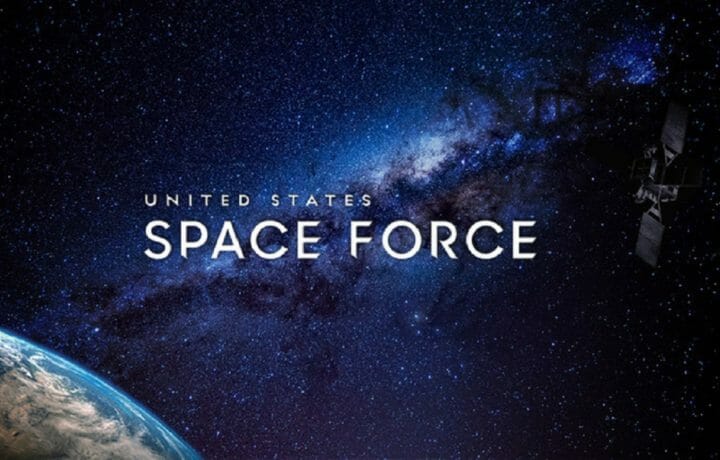ClearanceJobs sat down with Chris Parrett, Human Resources Director at the United States Space Force, to talk about how the Space Force is creating unique opportunities for not only their military and civilian Guardians, but their spouses and family members, as well.
Though Parrett has worked in human resources since college, her path to the Space Force was anything but typical. When her husband was transferred to Germany, she thought she should easily be able to find a job with the government in human resources; after all, it’s an in-demand field, she was mid-level management and her master’s degree made her a highly qualified candidate – or so she thought. After 123 job applications and only two interviews, she finally landed a GS-5 position as an HR Assistant at the Army.
“I didn’t know what an uphill battle I was facing over there,” she said. “We ended up overseas for eight and a half years, and I gained a lot of experience with the Army in both the (HR) operations side of the house as well as command. After returning from overseas, I have had the opportunity to work for the Corp of Engineers, Department of the Navy, Department of the Air Force, and the Office of the Secretary of Defense before joining the Space Force.”
When a few of her mentors suggested an opportunity at the Space Force, and after her kids thought she was cool for about two seconds when they thought she was going to be a director on the TV show, she jumped at the chance to use her experiences and philosophies to help shape the first new military department in over seventy years. “I didn’t have a traditional career path, and it didn’t follow any career mapping. I kind of forged my own path to get my experiences to become the director I am today,” she said.
Building a program from the ground up
The opportunity to build a workforce from the ground up is fascinating, but not without its challenges. Parrett said, “It is building the rocket while flying it and that can get messy.” It isn’t just technical experience that Space relies on, but a mix of experience, determination, vision and an entrepreneurial spirit. While there is still quite the journey to reach full operating capability ahead of them, in the short time since their inception in December 2019, it is impressive to see the progress they have already made in codifying programs, developing policies, and taking steps to move towards being a digital workforce. They published their first Human Capital strategy, the Guardian Ideal, in September 2021, and is a good indication of their commitment to being a people-first organization, to deliberately design a place people where want to work.
Sourcing talent from many places
The Space Force is very focused on its diversity statistics, but “we don’t just want to have just traditional diversity in things like gender or race, but we want diversity of thought, experience, and background,” said Parrett. “We have people coming from academia, industry, and across the government. There’s a place for talent from everywhere, not just within the DoD.” Hiring seasoned workforce veterans comes at the cost of a rapidly aging workforce, so Space Force has established University Partnership Programs with a number of colleges across the country to start establishing relationships and building opportunities sooner.
They’ve also placed a special emphasis on hiring military spouses, along with civilian spouses and family members with their newly established Guardian Family Career Program. Parrett explained that “There is such a rich talent pool of dedicated and resilient individuals that we haven’t set the right conditions to support sustainable employment opportunities.” The program is similar in concept to a dual-military program, but offerings pre-identified civilian positions as remote, max telework and/or transferrable options so that (spouses) don’t have to have their career interrupted when moving between bases. The Guardian Family Career Program is the opportunity to meet individuals where they are – entry level, mid or advanced and develop into a long-term, sustainable Space careers.
How to get hired at the Space Force
According to Parrett, candidates can increase their chance of being hired with the Space Force by honing in on their resume. “We have been fortunate to have thousands of resumes coming in” she explains. “Realistically, (we) have about 10 seconds to look at each resume. What are you trying to tell us in 10 seconds? If you’re applying for a specific job, how are you highlighting your skills for that job? You need to tell us right up front: how are you successful?”
The Space Force knows they have very tough and competitive career fields and are always looking for candidates experienced in Acquisition, Space Operations, Space Intelligence, Data, AI, and Cyber. Additionally, they are always on the look out for those interested and/or experienced in financial management, programming, human resources and legislative affairs. “Space is hard and it isn’t for everybody. Just because you have the experience, this isn’t a traditional work opportunity and it takes a mindset willing to take on the challenges coming our way”
Over the next few months, the Space Force will consolidate their job openings at SpaceForce.com. For now, civilian candidates can check job availability on LinkedIn, UsaJobs.gov and ClearanceJobs.com..
“Space is cool! We’re really proud of what we’ve been able to build in this culture and establish in such a short time,” said Parrett. “It’s a really exciting time to be able to be at the start of an organization like this”




